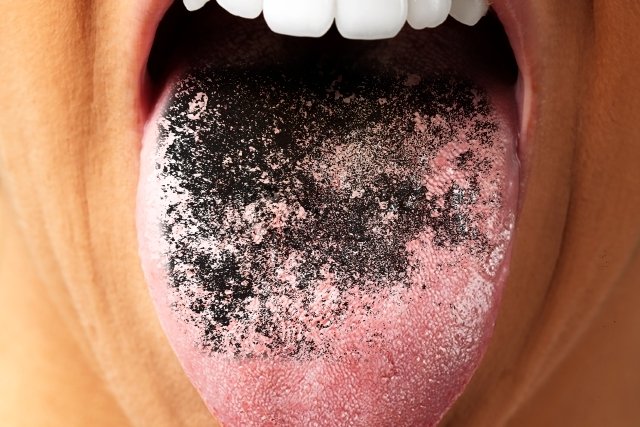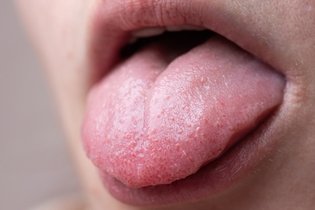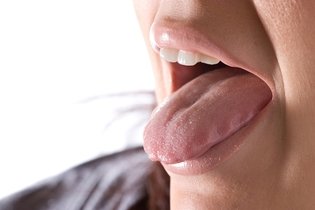A black tongue is generally not a sign of a serious problem and, in most cases, it is caused by a fungal or bacterial infection on the taste buds. Many times, many people will report the sensation of a hairy tongue, however this is usually due to slightly elongated taste buds.
Black tongue is a relatively common problem, and is especially prevalent in those with poor oral hygiene.
It is always important to consult a dentist or a doctor if you notice changes to tongue color, so that the underlying cause can be identified and treatment.

Common causes
Black tongue is typically caused by:
- Poor oral hygiene: this allows for the overgrowth of bacteria and fungi that should typically be removed with a toothbrush. Therefore, it is important to brush your tongue when brushing your teeth.
- Low saliva production: Saliva is important for both food digestion and for eliminating dead cells on the tongue. Therefore, reduced saliva can lead to the accumulation of fungi and bacteria on the tongue.
- Liquid diet: Solid foods also also important for removing dead cells from the tongue. Those who are on a liquid diet are more prone to having old cells accumulate, promoting the development of fungi and bacteria.
Regular use of some medications, such as antidepressants, antihistamines or antihypertensives, can also lead to a drier mouth which can favor the development of a black tongue. Bismuth salicylate, for example, can also interact with substances in saliva and form a compound that accumulates on the surface on the tongue and change its color to black.
What causes a hairy tongue?
Generally, taste buds are pink and very small in size, so small that they are not physically visible. However, when fungi or bacteria start to build up on the tongue, taste buds can change color and become more elongated due to the accumulation of dead cells, fungi and other debris.
Some people may present with a more noticeable tongue color change than others, and also appear to have a hairy tongue. These symptoms can become more pronounced due to habits like smoking or excess coffee drinking.
Other symptoms
In addition to the visible color changes, a black tongue can also present with:
- Slight burning sensation on the tongue
- Metallic taste
- Bad breath
Due to changes in taste and breath, some people may also experience nausea that is unrelated to any gastric problem
Treatment options
In most cases, specific treatment for black tongue is not necessary. It can often be resolved within a week with increased, more thorough oral hygiene to eliminate dead cells and microorganisms. Generally, you are advised to perform oral care twice a day.
However, if the black tongue does not resolve, it is best to consult a dentist or family doctor to identify the underlying cause. A black tongue caused by medication, for example, may require a medication or dose change.
Some doctors may also prescribe an antifungal or an antibiotic to try to eliminate microorganisms more quickly and speed up treatment.








